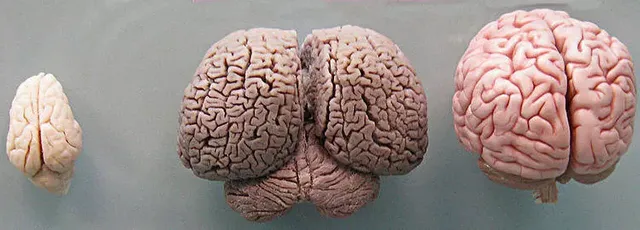We people do not brag about the size of our brains. So what; The greatest brain on earth is not ours. In terms of brain mass, the record belongs to the sperm whale, which has a brain of about 8 kg mass, 4 times the average human brain. The filler, on the other hand, is a group of large brains with an average of 5 kg mass. But these animals are much larger than us in terms of body size, not only in terms of brain mass. Well, we can not make a fair comparison, are we? What happens if we calculate brain size according to body size?
One way of making a brain comparison is the encephalisation coefficient (EQ). What is this encephalisation coefficient? This number is basically an orb and it is calculated as follows; the size of the actual brain, and the size of the body that the body size is expected to be. An encephalisation coefficient of 1.0 in. Means that the animal has a brain larger than the expected brain size. Here is the point that we are actually talking about; because people are on the list with an EQ of about 7.5 in this calculation. Filler, about 2.0; for chimpanzees, 2.5 and for bottle-nosed dolphins it is 4.14.
However, EQ alone is not enough to capture the differences in the brains of different species. Some brains have a more curved or wrinkled structure than others, and a smaller area creates a wider surface area. In addition, some brains have more neurons than others, which causes neurons to be more tightly bound together in the same area. On the other hand, the specific braids of some species' brain organization allow these species to do things that people can not easily do.